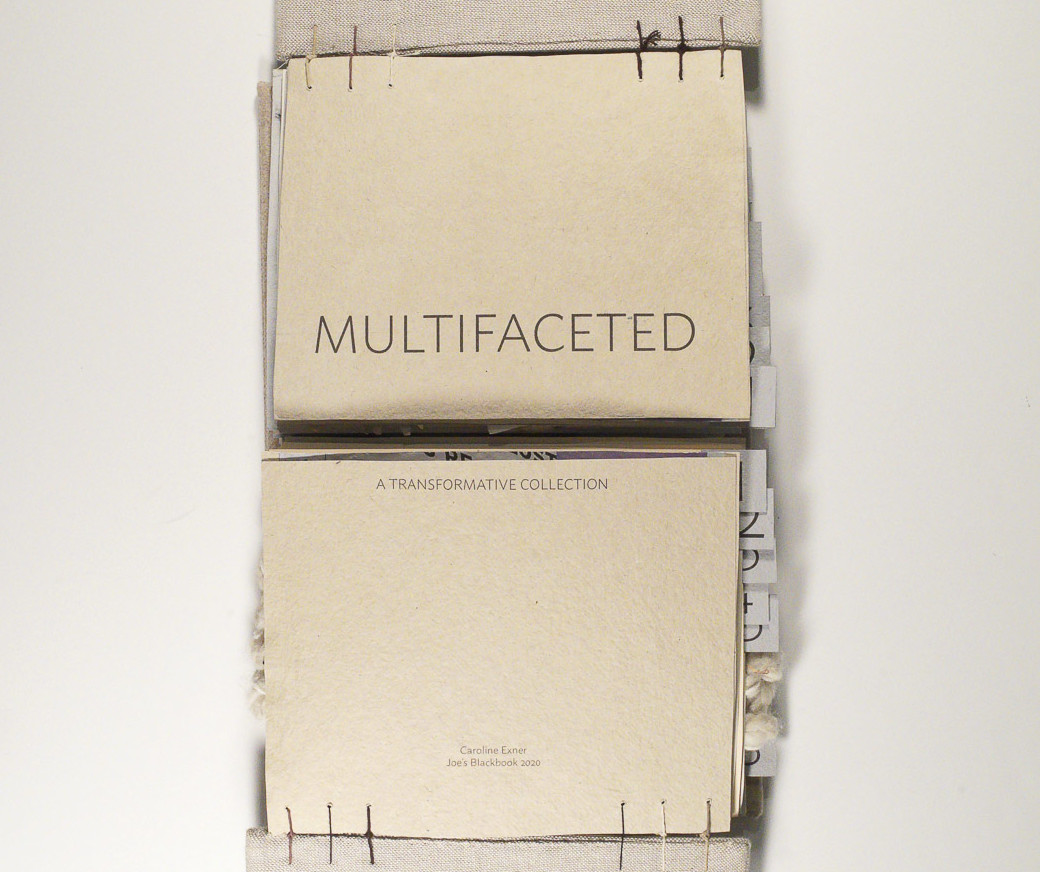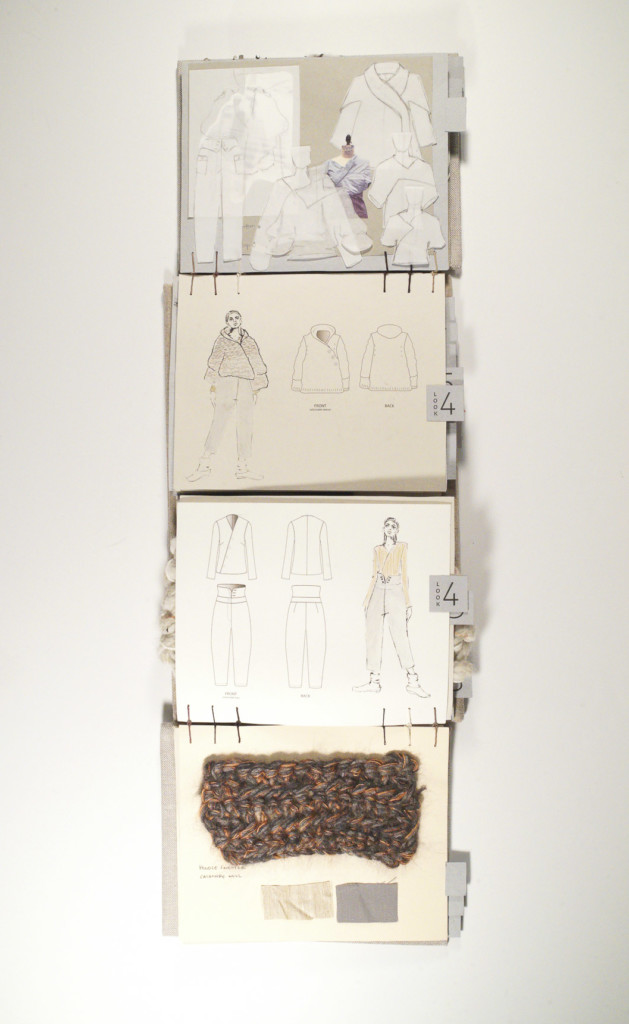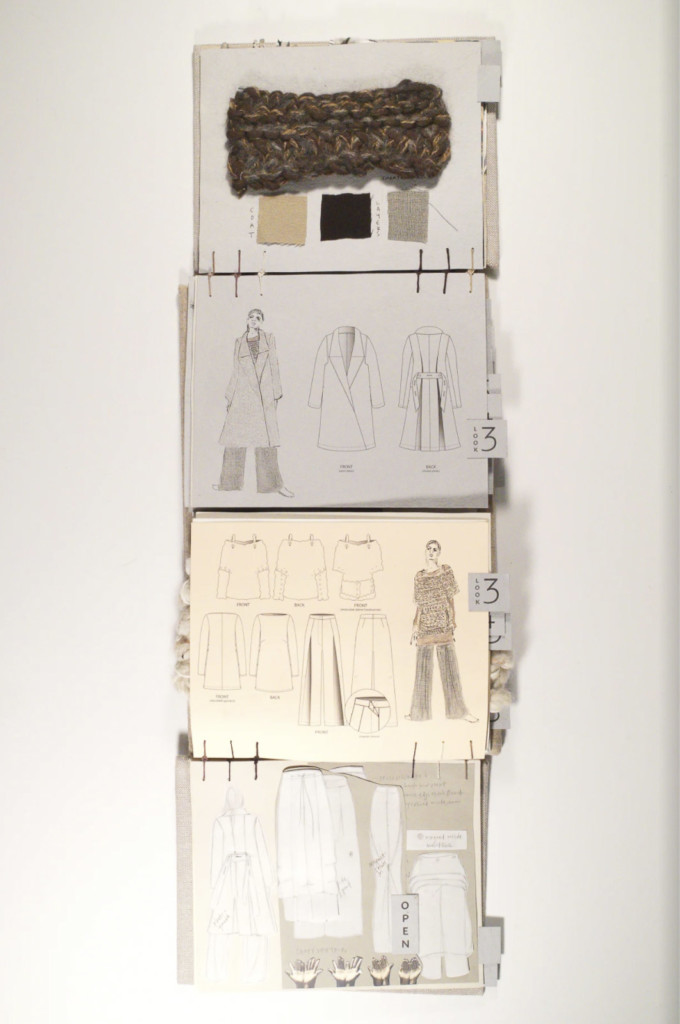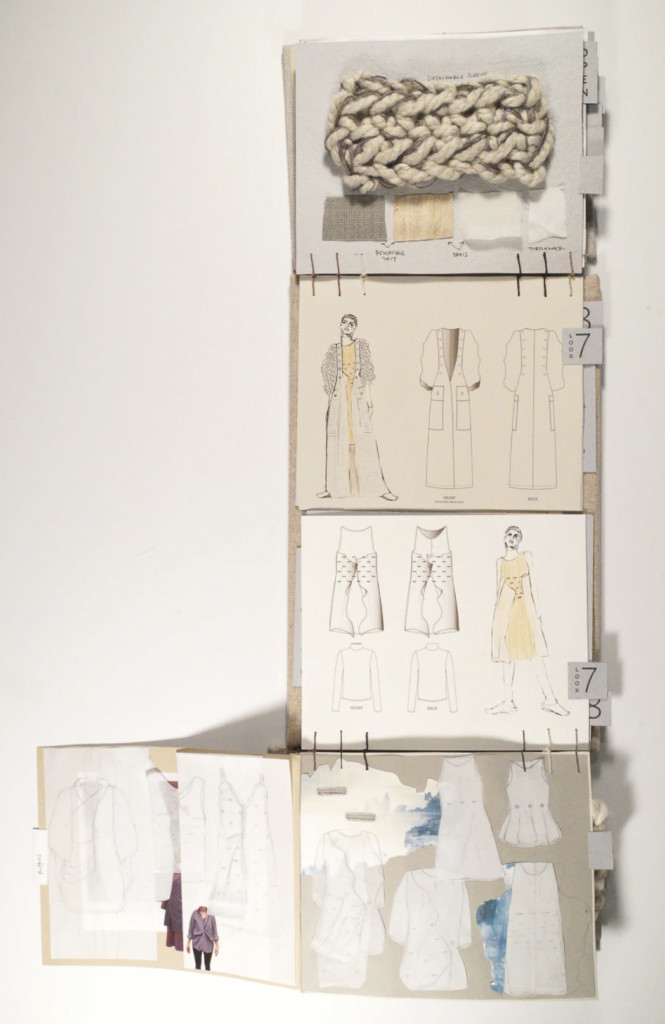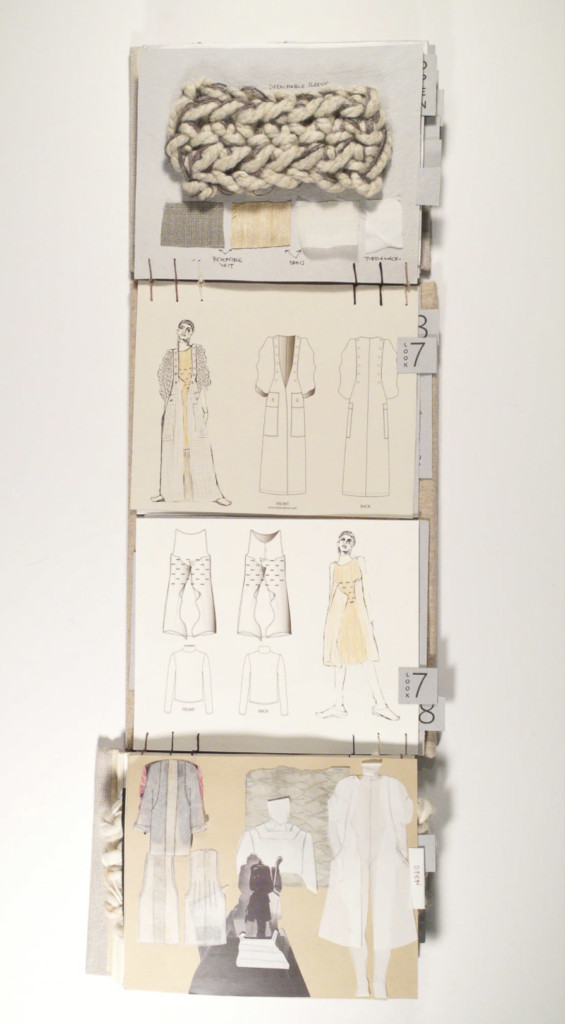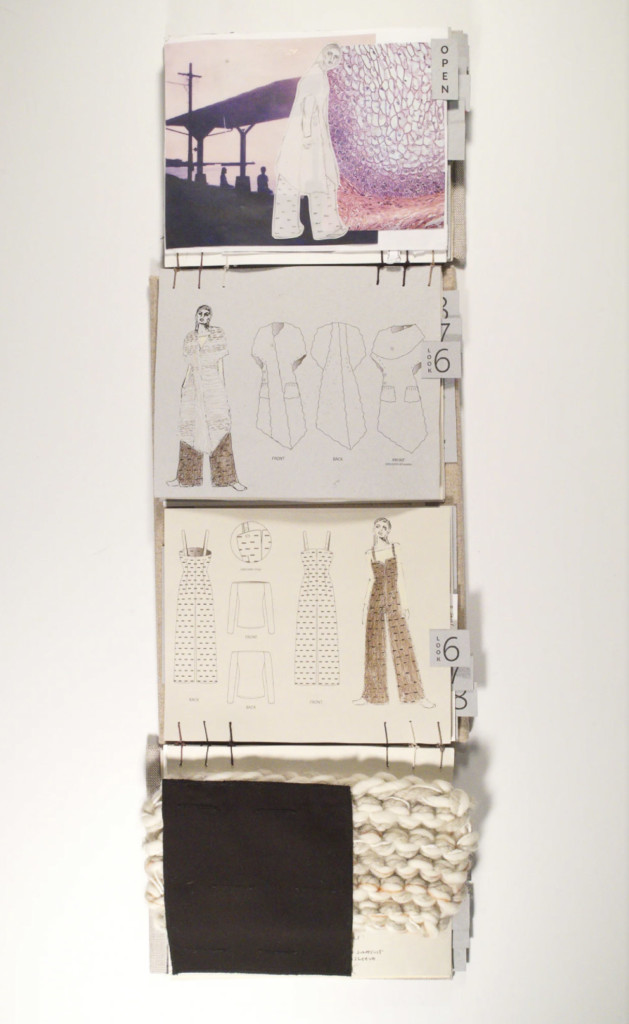By Nina Tabios
Like many of her fellow classmates, when Caroline Exner first came to the Academy of Art University School of Fashion (FSH), she wanted to sew and learn how to make things with her hands.
“I chose the Academy because it seemed like–and it is–an opportunity for me to learn and cultivate a craft in an environment where I’m surrounded by other creative people,” Exner said. “I’ve known people who went to the Academy who have cultivated their creative side, and I wanted that opportunity for myself as well.”
After learning how the clothing and textiles industry is one of the largest polluters in the world, Exner has since changed course toward sustainable design. Outside of class, she researched recycled, eco-friendly, and locally-sourced materials. As an intern for the Sustainable Fashion Alliance in San Francisco, Exner saw firsthand local sustainability efforts from Bay Area companies and brands such as Allbirds and Athleta. For Exner, it was all about recognizing how even small choices can make an impact.
“I learned a lot about what they’re doing, how they’re producing their garments, what’s most important for them,” she said. “I think that by studying [them], I was kind of able to piece together other things that were important to me for my projects.”
Recently, Exner’s own ideas of sustainable design earned her recognition from professionals in the industry. Back in September, Exner was named among the top three womenswear finalists for Joe’s Blackbook Scholarship, a prestigious competition that awards two $10,000 scholarships–one menswear, one womenswear–to students in their junior year at school. At the Academy, fashion design students are required to participate and department directors select the top collections to submit.
Exner’s project, a conceptual womenswear collection aptly named “Multifaceted” exhibited conscious design in both the construction and materials. Inspired by the complexities of womanhood, transformation, and beauty, Exner set out to create an eight-piece collection designed to be worn year-round.
“There are eight looks but many of the looks transform,” Exner continued. “You can mix and match the pieces, so the point really is to have a capsule collection where this woman can wear the garment in different ways, that her wardrobe transforms as she transforms.”
In terms of material, Exner handknit different swatches to get a sense of the look and feel. She spent hours at ImaginKnit, a yarn store in San Francisco’s Mission district, picking out the perfect yard. “I sourced all the fabrics, so some of it is recycled,” she said. “But most of the fabric is natural fiber, piecemeal, wool, organic cotton, hemp silk, things like that.”
According to FSH Director Gary Miller, it was Exner’s swatches that set her collection apart from the rest of the junior class.
“Caroline’s project was multifaceted, showed originality, and has a conscious creative voice that is in touch with the industry,” Miller said. “The materials—in particular the knitted swatches—showed Caroline’s versatility as a designer and each look was crafted to show a very thoughtful depth of development.”
It’s a different approach to sustainability that encourages consumers to rethink their relationships with their clothes.
“Overall my hope is that this collection moves people to explore their creativity in the clothes they wear and the wardrobes they put together,” Exner said. “I hope to inspire other designers to get curious about their current methods, encouraging them to explore new possibilities when creating their collections.”
Exner said the acknowledgment from Joe’s Blackbook provided her validation that people are intrigued by her designs and ideas. But for her last year in school, Exner is opting out of senior collection. Instead, she plans to continue to pursue sustainability and learn new ways to advocate for the environment through fashion, art, and design.
“Our planet is important to me and so is my focus on thoughtfully using our resources,” Exner said. “People truly care about their clothing—clothing is something that reaches people everywhere. It’s my belief that we can extend the care for how we look in our clothing to how that clothing is produced.”
